Sense of period
Developing a sense of period is about going beyond knowledge of dates and period labels to help students appreciate the kind of world in which the people that they are studying actually lived. Such understanding is obviously supported by knowledge of key events, but it also depends on being able to visualise the period – recognising the kind of conditions in which people lived – and on an appreciation of the routine ideas and assumptions that shaped their thinking. The resources in this section offer a range of strategies to help teachers plan for the development of this kind of awareness, focusing particularly on the different kinds of sources that can be used to make the ideas and attitudes of people in the past accessible and meaningful in their particular context.
-
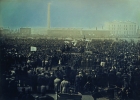
Teaching Year 8 pupils to take seriously the ideas of ordinary people from the past
ArticleClick to view -
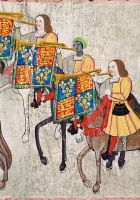
Widening the early modern world to create a more connected KS3 curriculum
ArticleClick to view -
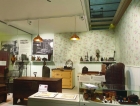
Triumphs Show 176: Using material culture as a means to generate an enquiry on the British Empire
ArticleClick to view -

Harnessing the power of community to expand students’ historical horizons
ArticleClick to view -

Using narratives and big pictures to address the challenges of a 2-year KS3 curriculum
ArticleClick to view -
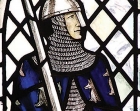
The dialogic dimensions of knowing and understanding the Norman legacy in Chester
ArticleClick to view -

‘Man, people in the past were indeed stupid’
ArticleClick to view -

Narrating “Histories of Spain”
ArticleClick to view -

Triumphs Show 167: Keeping the 1960s complicated
ArticleClick to view -

Inverting the telescope: investigating sources from a different perspective
ArticleClick to view -

New, Novice or Nervous? 167: Confidence with substantive knowledge
ArticleClick to view -

Move Me On 167: Frames of reference
ArticleClick to view -
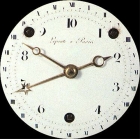
Why are you wearing a watch? Complicating narratives of economic and social progress
ArticleClick to view -
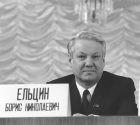
Polychronicon 166: The ‘new’ historiography of the Cold War
ArticleClick to view -
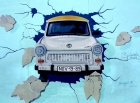
‘If you had told me before that these students were Russians, I would not have believed it’
ArticleClick to view -

Of the many significant things that have ever happened, what should we teach?
ArticleClick to view -

Cunning Plan 166: developing an enquiry on the First Crusade
ArticleClick to view -

Move Me On 165: Capturing student interest vs. sense of period
ArticleClick to view -
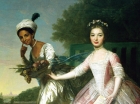
The Power of Context: using a visual source
ArticleClick to view -

Pedagogical framework for stimulating historical contextualisation
ArticleClick to view

